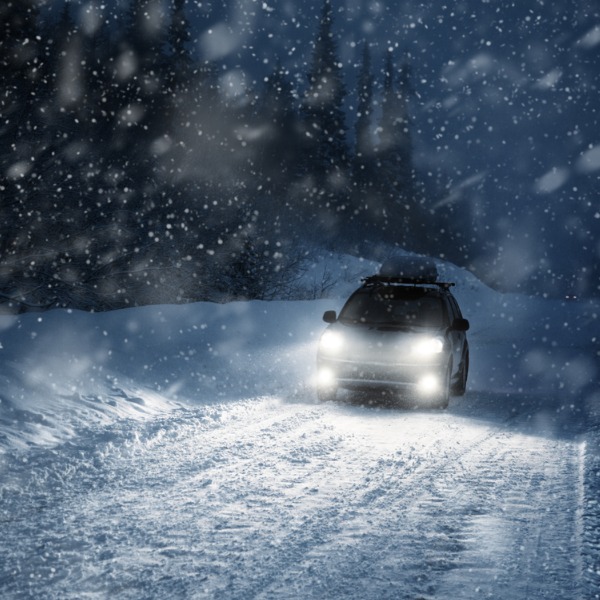Everyone knows that winter is hard on vehicle electrical systems, but you might wonder why? Digging deeper into the question of “Why?” will help you better understand the challenges faced by your electrical system and how to better maintain your vehicle over winter to reduce chances of unfortunate breakdowns. The thought of a winter breakdown is enough to send a chill up anyone’s spine. Give yourself the best chance of making it through winter without getting left out in the cold with a vehicle that won’t start or stalls on the road.
The “whys” of winter woes on car and truck electrical systems:
1) Fewer Electrons
Cold temperatures make it harder for your battery to produce electrons because of the nature of chemistry. Producing electrons is the result of a chemical process, and that is simply harder to do in cold weather. Electrons, of course, are the source of power. Fewer electrons mean less power to essential components like starters. As batteries get older, they also become less capable to do the job. Eventually, the battery gets overwhelmed and can’t keep up.
2) Thicker Oil
As temperatures drop, motor oil becomes thicker, making it harder to start a vehicle. To get a vehicle going, it requires more power from the charging system, at a time when the system is already under stress. The extra strain can affect both your battery and alternator, which work together as a team to deliver electrical current.
3) Corrosive Effects
Winter tends to be a sloppy, wet time of the year throughout much of the country. Exposure to moisture can lead to problems ranging from corroded battery cable connections to damaged alternator shaft bearings. Corrosion adversely affects functionality of electrical components.
4) Stressed Belts
As temperatures dip, the serpentine belt that works with the alternator can become stiff or misalign, which can cause slippage and squealing noises. When the serpentine belt isn’t working properly, your charging system won’t work as efficiently or effectively as it should.
5) Accessory Usage
For many people, usage of accessories that require electrical power increases in winter months. Longer days of darkness means headlights are on longer. Frequent snow, sleet and road spray result in more windshield wiper usage. Longer commutes mean more drivetime with the radio playing. If your car or truck is equipped with heated seats, chances are those are drawing electric, too. All of these usages result in the need for more power generation, placing additional burdens on the charging system.
Inspect your Electrical System
You don’t want to be sidelined with a vehicle that doesn’t start or stalls on the road because of a weak electrical system. Your best choice is to get a thorough inspection of your charging system before winter settles in. With a well-functioning electrical system, you should be able to get through winter without any problems. Precautions taken now will be appreciated when the wind is howling and the temperatures are dropping.
Related Articles
5 Top Tips to Prepare Your Vehicle Electrical Systems
What Makes Marine Starters and Alternators Different
5 Reasons Why Summer Heat is Hard on Vehicles
6 Clues to Electrical Components for Muscle Cars


